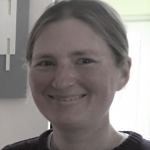
Robohub.org
Interview with Roberto Figueiredo: the RoboCup experience
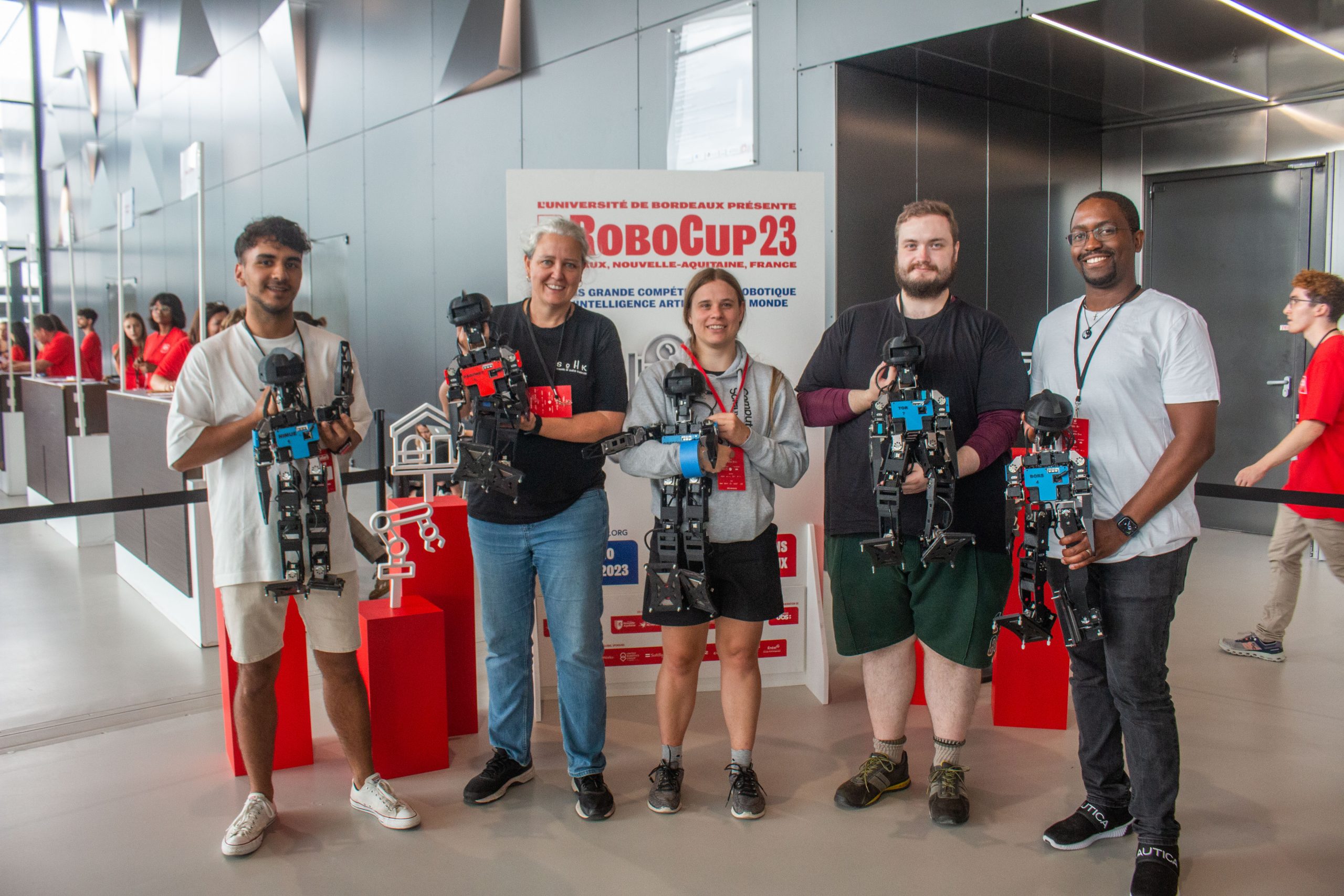
Roberto Figueiredo is a master’s student at the University of Aveiro. He is a member of the Bold Hearts RoboCup team which competes in the Humanoid KidSize soccer league. He is currently the local representative for the Junior Rescue Simulation. We spoke to Roberto about his RoboCup journey, from the junior to the major leagues, and his experience of RoboCup events.
When was your first RoboCup event and which competition did you take part in?
I started in 2016 in the Junior leagues with my high school and I took part in the rescue simulation competition (although I originally joined the on-stage competition). This first event actually happened in Portugal, and it was similar to a workshop. We qualified to go to the world cup in rescue simulation, in Leipzig, Germany, and we ended up in second place. That was really nice, and it was my first contact with RoboCup, and with robotics generally. I’d been working with electronics in the past, but simulation gave me a bit of an introduction to the more theoretical aspects of robotics, and to AI in general. Rescue simulation makes you think of ways to make the robots independent and not manually controlled by humans.
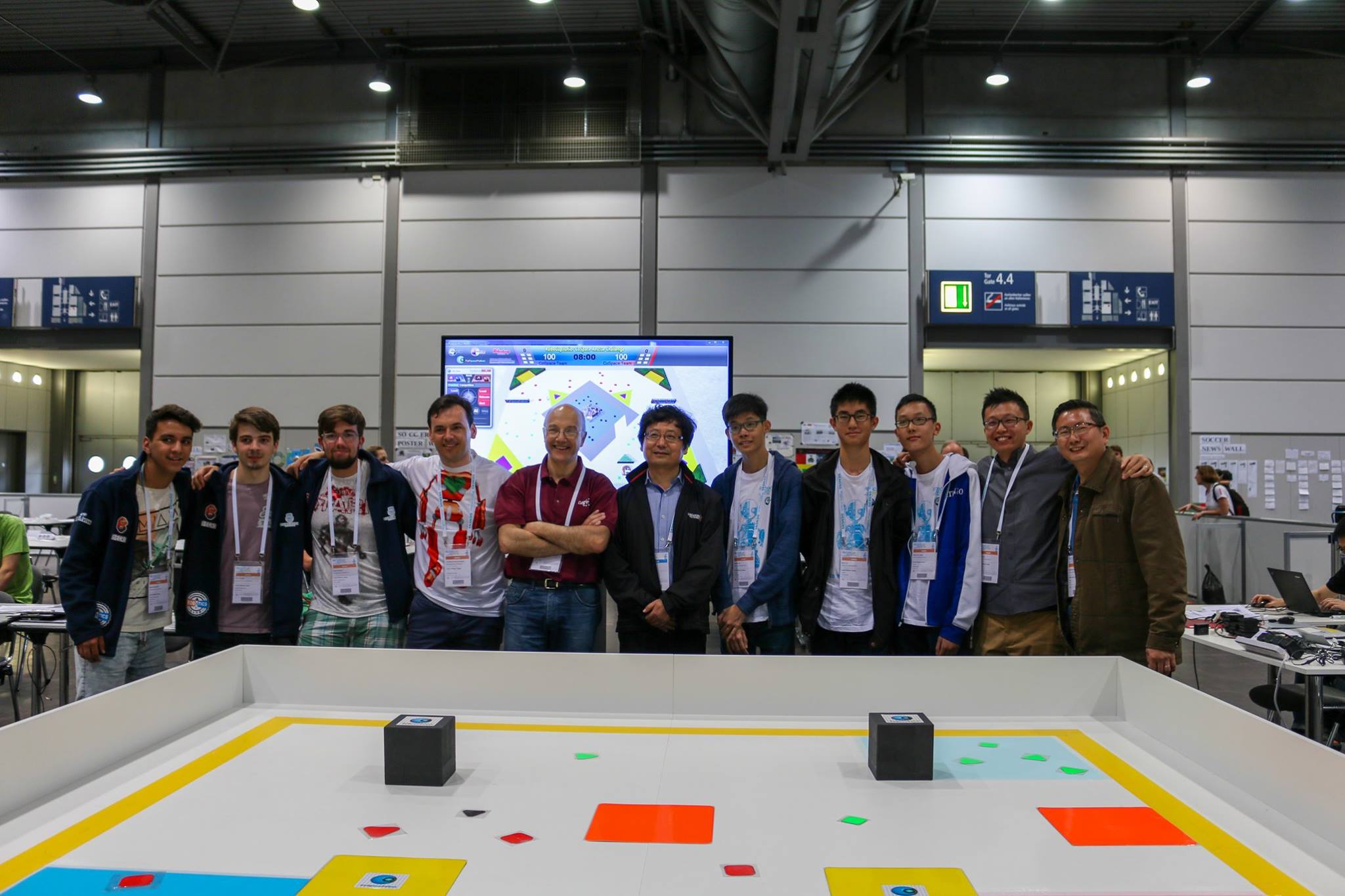 Roberto’s first RoboCup in 2016, Leipzig, pictured with the Singapore team celebrating after the finals.
Roberto’s first RoboCup in 2016, Leipzig, pictured with the Singapore team celebrating after the finals.
Could you tell us about the subsequent RoboCup events that you took part in?
In 2017 we qualified to go to Nagoya, Japan, which was not just an amazing RoboCup, but an amazing trip. That’s another good thing about robotics, you get to meet a lot of new people in new countries. We did quite well in this competition as well, I think we reached 5th place.
After that we went to European RoboCup Junior in Italy. The following year was my last RoboCup as a junior, which was in Sydney. That was also an interesting event and I got to chat a bit more with the majors and understand how their teams worked. By this point, I had gained more experience, and I felt ready to get involved with a major league RoboCup team.
There is a big gap between the junior and major leagues. When I joined my team (the Bold Hearts), most of the team were PhDs and I was just a second year bachelor’s student so it was quite hard to pick up all the knowledge. However, if you are persistent enough and you are interested in, and passionate about, robotics you’ll get the hang of it and you’ll learn by trial and error.
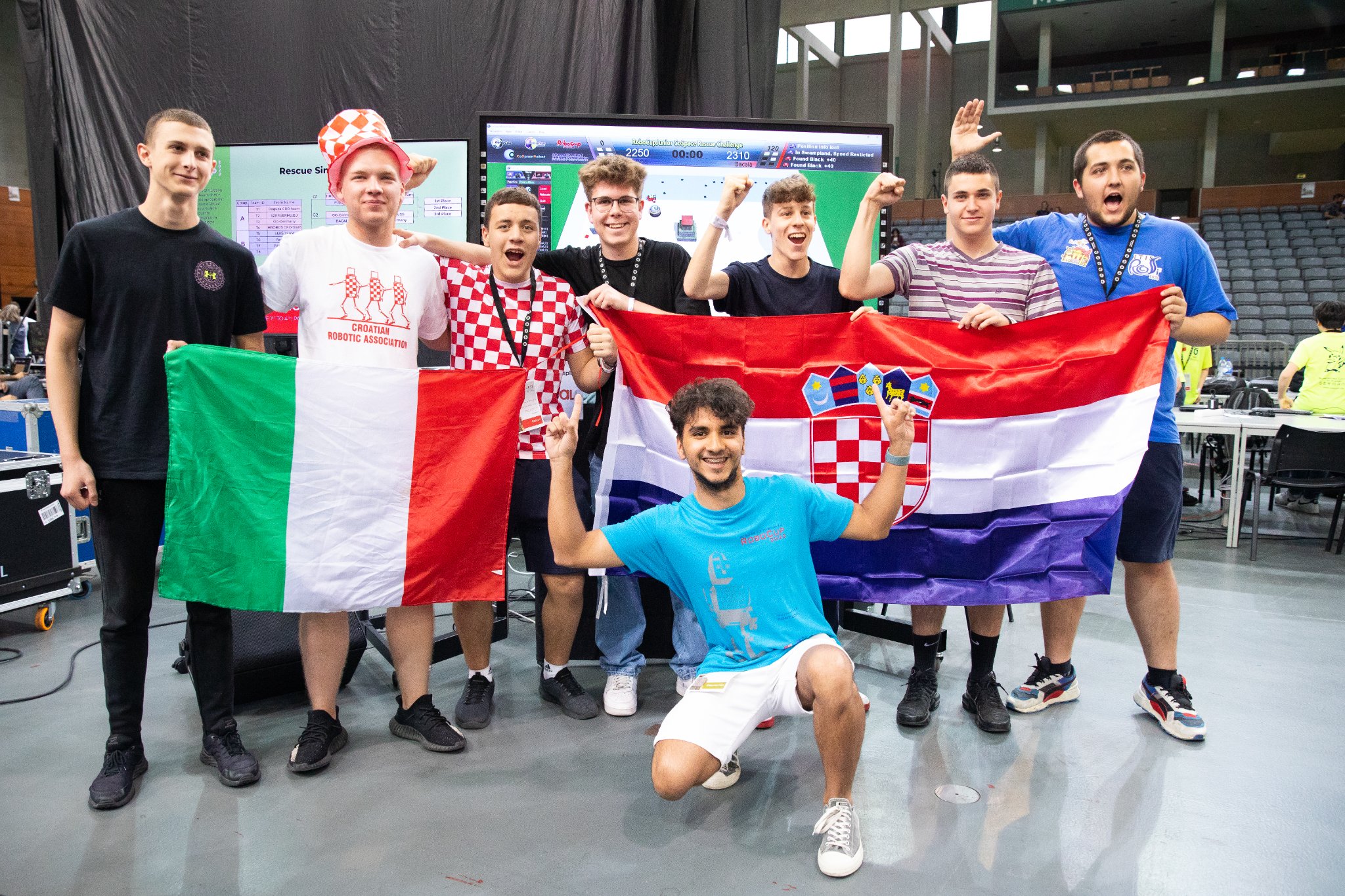 EuroRoboCup 2022 in Portugal. Roberto (kneeling in photo) was part of the organising committee.
EuroRoboCup 2022 in Portugal. Roberto (kneeling in photo) was part of the organising committee.
When was your first competition with the team in the major league?
My first competition was actually last year, in Thailand. We didn’t perform as we would like to, however, there is much more to RoboCup than just the competition – it is now more of a scientific and knowledge-sharing event, it’s unique. Just this year, in Bordeaux, we had a problem with our robots. Every time we disconnected the ethernet cable, the robot just stopped playing, and we couldn’t figure out what was happening. I asked another team that was using the same software – they had figured out the problem before and they told us how to solve it. I don’t think you’ll see that in other competitions. Every team has a joint objective which is making science progress, making friendships, and making other teams better by sharing their knowledge. That’s really unique.
How did you join the Bold Hearts team?
I decided to do my master’s in the UK (at the University of Hertfordshire), to experience a different country and a different style of education. When I joined, I knew there was a team so I was already looking forward to joining. After a couple of years of work, we finally got to go to a competition as a team. It’s been an amazing time and a huge learning experience.
What is your role on the team?
In our team, everyone does a bit of everything. We still have a lot of problems to solve – on both the hardware and software side. All of us currently are computer scientists so it’s a bit more of a struggle to work on the hardware side. So, I do a bit of everything, both AI and non-AI related problems. For example, I’ve done some 3d modelling for the robots, and I’m currently working on the balancing problem. We all work together on the problems which is amazing because you get to see a bit of everything and learn from everyone. Robotics is a very multidisciplinary field. You get to learn about all kinds of topics: mechanical engineering, electrical engineering, machine learning, coding in general.
The Bold Hearts’ qualification video for this year’s RoboCup competition
Could you tell us about this year’s competition (which took place in Bordeaux)?
This year we were a lot more prepared than last year, when we’d just come back from COVID, and all of our experienced members had recently left the team, due to finishing their PhDs and starting work. Creating a successful robot team is a huge integration problem. There are so many pieces that need to go together and work perfectly for the robots to function, and if one fails it looks like your system isn’t doing anything. We got walking working perfectly this year, we had vision working well too, and we had a stable decision tree, and we were able to listen to the controller (which is like a referee and passes on information about fouls, game start and stops etc.). However, we had some bugs in the decision tree that made everything fall apart and we spent a lot of time trying to debug it. This happens to a lot of teams. However, you can still appreciate the work and progress of what they have done.
 RoboCup 2023 in Bordeaux. Roberto (left) with Bold Hearts teammates.
RoboCup 2023 in Bordeaux. Roberto (left) with Bold Hearts teammates.
What are the immediate plans for the team?
We are now thinking about joining the simulation competition, which is part of our league. It takes place in the winter season and we’re planning on joining to work on our software. The transition between simulation and hardware is quite hard. You need a good simulation base to be able to transfer directly the knowledge to the robot. We’re working on having a very good simulation so we can transfer, at least more easily, the knowledge learnt in simulation to the robots.
RoboCup is moving more towards AI and learning, which we can see in the 3d simulation. The robots learn a lot of the motion through reinforcement learning, for example. In the physical leagues it’s not as easy as we have to transfer that to the real world, where there is play in the joints, there’s backlash, there’s play in the 3d parts – there are a lot of variables that are not taken into account in simulations.
How has being part of RoboCup inspired your studies and research?
Every time I go to RoboCup I come out thinking about what I’m going to do next. I couldn’t be more inspired. It’s a really intense field but I love it. It makes you want to work really hard and it makes you passionate about science. I did my bachelor’s project related to RoboCup, I joined a master’s course on robotics, I keep asking my Professors if they want to start a team back in Portugal. I’m going to do my master’s thesis on robotics, on humanoids. I think humanoids are a very complex and interesting challenge. There is no one single solution.
About Roberto
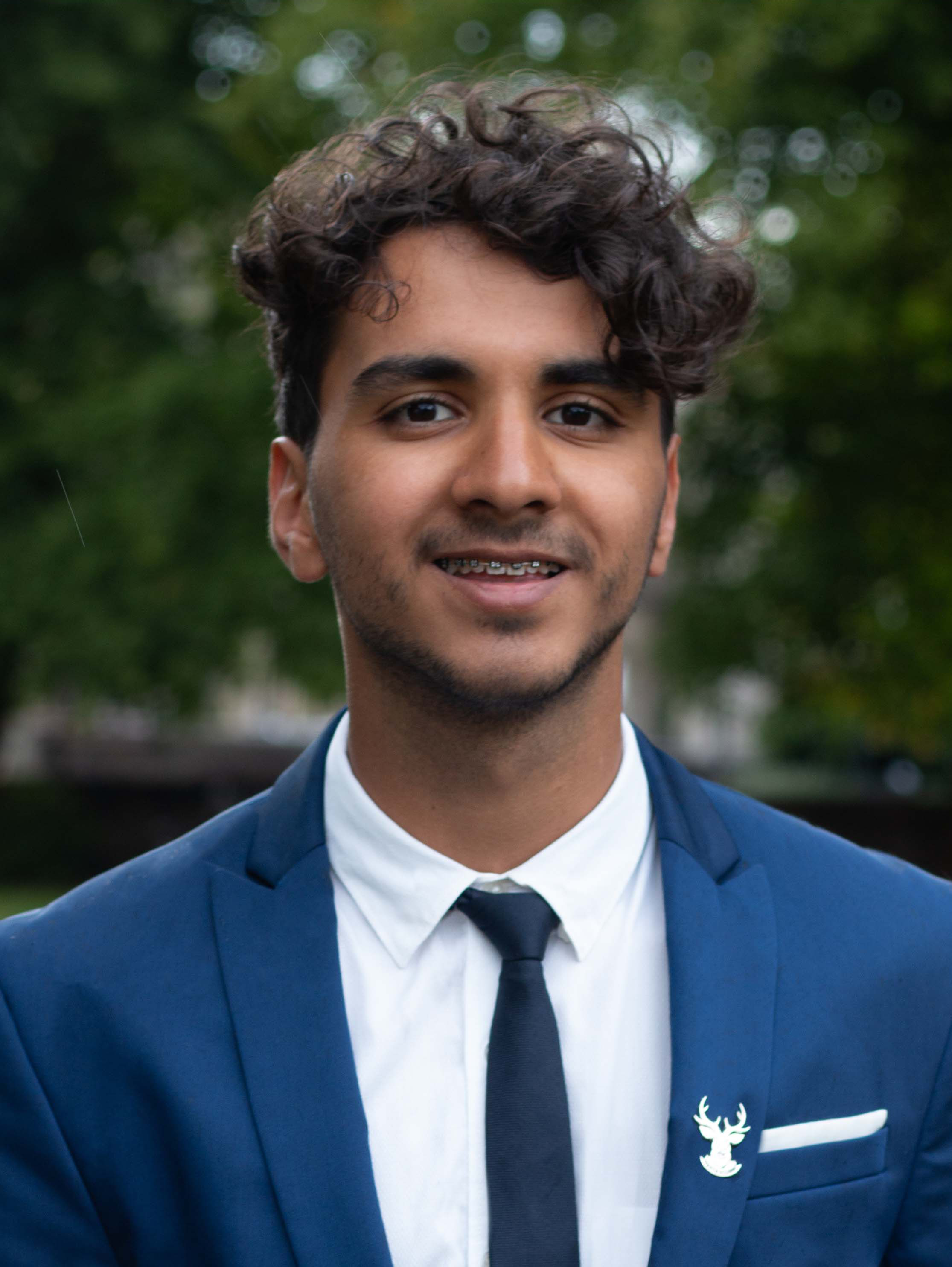
|
Roberto Figueiredo is a Portuguese, AI-focused computer scientist with a bachelor’s degree from the University of Hertfordshire. He currently pursuing a master’s in Robotics and Intelligent Systems from the University of Aveiro, and is passionate about advancing his expertise in robotics. He has long been very enthusiastic about robots and AI, being a participant in RoboCup since 2016 in the Rescue Simulation league. He has since become local representative for the Rescue League in Portugal and joined a Major team, Bold Hearts, in the Kid Size league, one of the most challenging in RoboCup Humanoid Soccer. |
